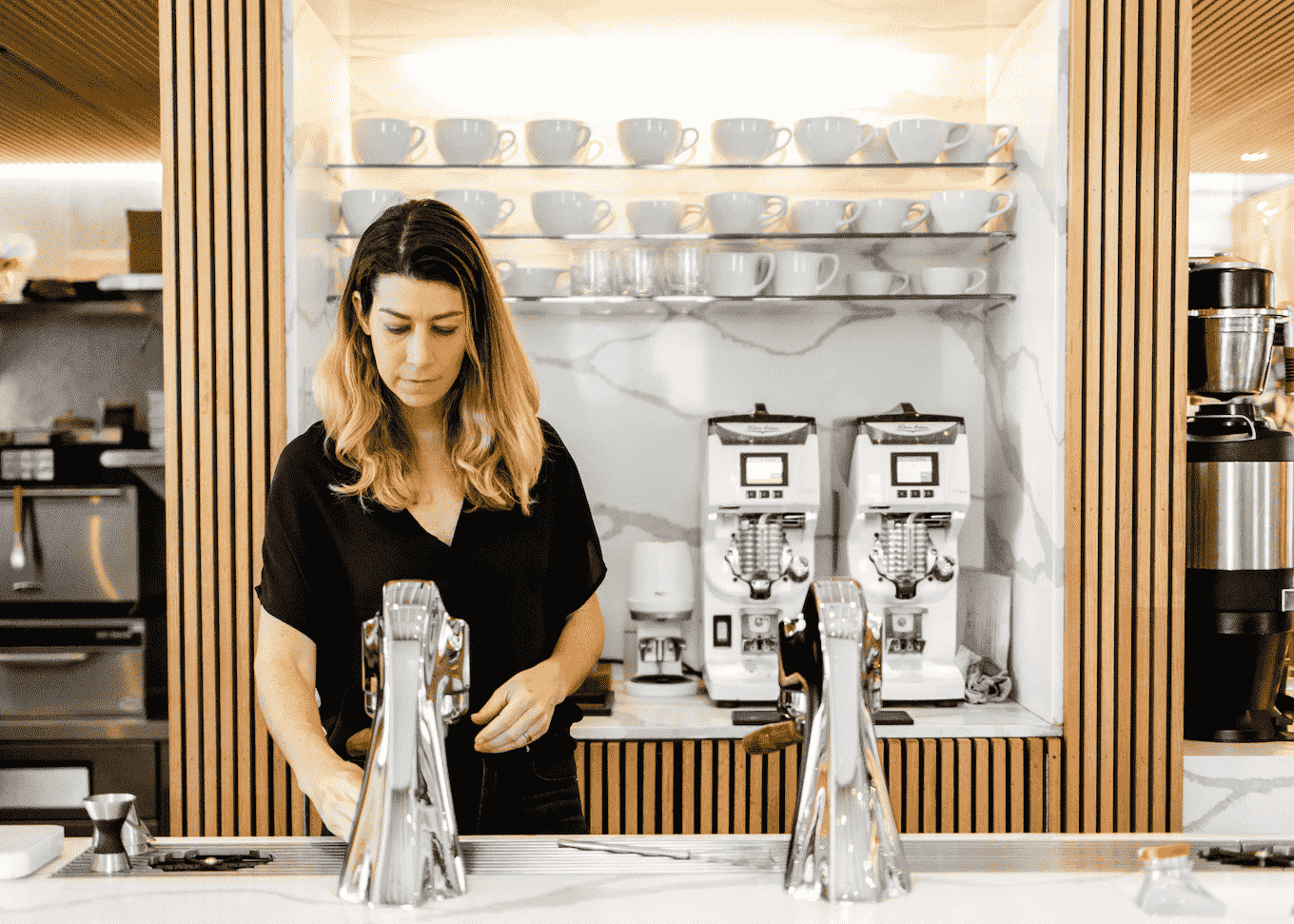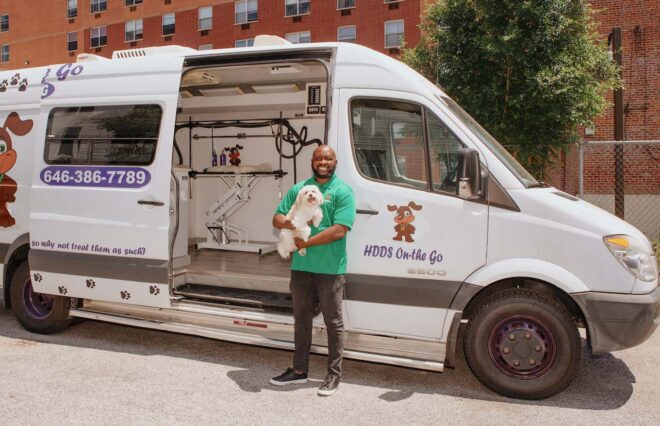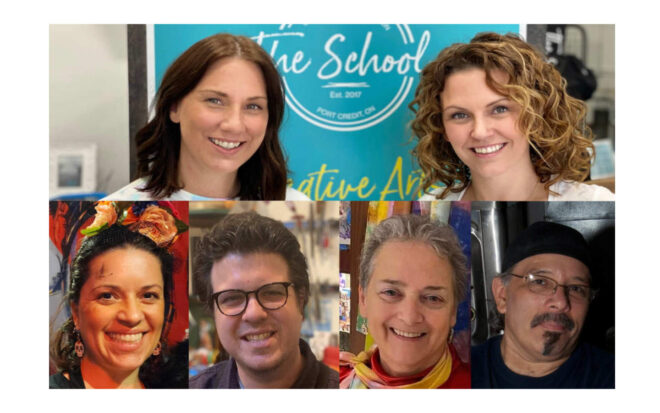Onyx Coffee Lab
Editorial Team
6 min read
Earlier this year, we launched a new series called Meet the Merchant, Q&As with real-world Clover merchants. In our first two installments, we talked to Ludwig’s German Table and Tin Pot Creamery.
Join us as we chat with Jon Allen, the co-founder of Onyx Coffee Lab. He shares the innovative ways in which Onyx is adapting to the COVID-19 crisis, supporting its employees, its customers, and the hundreds of cafes that use Onyx beans.
This installment of the Meet the Merchant series is a COVID-19 Small Business special edition.
Clover: Onyx Coffee Lab seems to be more than just your average cafe. Can you tell us a bit about your business model?
Jon Allen: Sure! Onyx as a whole is different because our main business is roasting for other cafes. I didn’t feel that there was a roaster in our demographic (high-end specialty cafes) that was aimed at the coffee industry itself. We wanted to market to baristas and owners, but it turns out the public really likes our beans too. In addition to supplying between 500-600 cafes with our beans, we run three stand-alone coffee shops, and recently opened up a fourth inside The Momentary—a contemporary art museum/performance venue.
We are running a fun experiment in the new cafe venue. Guests have the choice between two different menus: some items are made by automated machines, and others are made by hand by baristas. We hope, over time, to collect data on what people prefer, publish the results, and use them to drive our own practices and inform other cafes as well. Another fun feature at the new venue is that we’ve made oatmilk the standard for all of our drinks. Traditional dairy is available with a small carbon tax of $0.50. We are trying to change the assumption that dairy milk is the default.
Clover: You mentioned your business has changed as a result of the COVID-19 safety measures. How are you weathering the disruption?
Allen: The four cafes are the face of our company. When this struck, we pivoted immediately to takeaway to get people out of the lobby, since our baristas weren’t feeling comfortable.
We have Clover Stations tethered to Minis. We were able to separate the displays and set up walk-up windows in each location. It took us about 3 days to make that transition, and we are still running those currently. It’s allowed us to retain about 40-50% of our original business, which we feel is a great number for what’s happening in this economy.
Clover: It’s great that you prioritized the safety of your staff and your customers.
Allen: Yes, safety was a big deal for us and for our staff. We are running curbside pickup as well. The second major operation was to get our ordering system online using MunchEm. We integrated that into our website for curbside pickup and made a system for safe delivery. Customers pull into labeled parking spots (A, B, C, D) and they text us when they are here. We deliver to their car without them having to get out.
Clover: What other factors are at play for you as a manager? How are you caring for your team during this crisis?
Allen: My wife and I are the founders of Onyx. Most of our company has been with us a really long time; they are more than staff. We want to find a way to keep people in their jobs and keep the doors open, but we don’t want to force people to come to work if they don’t feel safe. It has been a hard tightrope to walk, but we’ve been working on solutions as we go.
We check in with every staffer regularly to see what they need, what feels right, get feedback, and identify who is feeling nervous and might need to take some time off. It helps us stay on top of any issues or concerns, and identify where any dangerous points of contact with others are happening. It’s a daily dialogue to understand who really needs the work. That’s been an important thing. It’s strange as an employer, but we have been asking people to let us know about their financial situation, and if they feel comfortable giving up a few shifts to help someone else. We want to be sensitive to everyone’s needs, which means asking more questions than we normally would.
Clover: How have your customers responded?
Allen: People will do anything for coffee. It can be the apocalypse and we will have a line out the door. Truthfully, the walk-up window is kinda fun. We’ve talked about having something like that even when things go back to normal.
Clover: What about your larger community?
Allen: We know that not every cafe has been able to adapt the way we have. To help others out, we started a campaign called Rising Tides. We are using our existing e-commerce platform and giving each cafe an individual code to promote online purchase of coffee products. When their customers shop in our online store using their cafe’s code, the cafe gets 15% of the entire sale. That’s been going extremely well. We have 60 cafes across the country participating in Rising Tides right now. It helps us support the cafes we supply and the customers who want quality coffee at home!
Clover: Was e-commerce a big part of the formula before this crisis?
Allen: We realized we didn’t stress e-commerce enough before [the crisis]. Thank goodness we are doing it now because it’s keeping us afloat. Now we’re realizing how much it can help us even beyond this crisis if we put more effort into it.
Clover: Anything else you would change?
Allen: We are using this time as a big business edit. It’s nice to examine change when there’s such a community of vulnerable empathy and grace. We are closing at 6pm now instead of 9pm. That might stay even after restrictions are lifted. It allows us to clean and do better work, and 6-9pm aren’t traditionally profitable hours. So, we can use this period as a catalyst for making changes that are better for the business, like cutting menu items that we don’t believe in or aren’t economical.
Clover: Anything else you’d like to share?
Allen: Clover has been key in helping us navigate unknown territory. We traditionally haven’t done call-in orders, and really encouraged our customers to consume our coffees in-house as it creates the best possible experience. Having to launch take away and mobile ordering was really intimidating. Clover connected us with programs and people to help us understand how to adjust. They’ve been really responsive to our questions and requests for changes as we figure out what works and what doesn’t. It has helped us continue to support our community and staff in a very difficult time by still serving customers in the best and safest way we know how.
Related Posts
Harlem Doggie Day Spa
Clover supports many unique businesses. Here are some favorites.
Popular Topics
Stay In Touch
Sign up and learn more about Clover.
Thank you for your subscription!
Recent Stories
- Jewelry store supplies and equipment needed for opening day
- How small businesses can use employee discounts to retain staff
- Tips and tricks for opening an outdoor pop-up restaurant
Please share your contact information
to access our premium content.
Thank you for sharing your contact information.
Download Now





